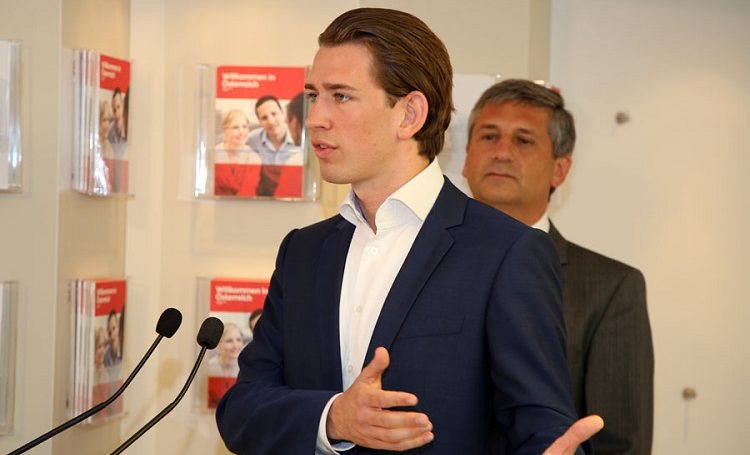
On 15th October 2017, Austrian elections made international headlines once again. Austria took a ‘turn to the right’ as a result of a campaign that promised to enforce a tougher stance on migration into Austria. The tightening of border controls and the deportations of rejected asylum seekers was advocated both by the Austrian People’s Party (ÖVP) and the Austrian Freedom Party (FPÖ) alike.
The ÖVP won the elections with 31.4% of the vote based on a campaign that focused mainly on its lead candidate, Sebastian Kurz. The party was not only named after the ‘Spitzenkandidat’ – Liste Sebastian Kurz – die neue Volkspartei – but was even recoloured (from black to turquoise). Just like in the French elections, under Emmanuel Macron, the personalisation of party politics is currently the way to go.
Another parallel can be made not only to the French elections but also to the recent German electoral contest: Social Democracy is in ‘a fix’. Even though Austrian Social Democracy has not been obliterated like in France, the Austrian Social Democratic Party (SPÖ) (26.8%) is almost at an equal level with the FPÖ (25.9%). In addition, the Greens (3.8%) took a beating that is rather unique. They lost 8.6% and will not make it into parliament after having been represented for 31 years. This is partly the result of internal party conflict, which led to a Green MP Peter Pilz forming his own party. He also went down the road of personalisation with his Liste Peter Pilz. This bore fruits insofar as his party will move into parliament with 4.4% of the vote.
What does all this mean for Europe? Austria’s role in the European Union (EU) played only a marginal role in the electoral campaign, which focused not only on migration and the role of Islam but also on the SPÖ’s “dirty” campaign strategy.
Yet, an independent Citizenforum (Bürgerforum Europa) wanted to shed light on the question of how the political groups approach Europe. In its response the ÖVP puts it focus, just like in the electoral campaign, on migration. The closure of the external borders of the EU and the cooperation between police and secret services of the Member States is high on the agenda to put an early end to planned terrorist attacks. The ÖVP clearly stresses its role as the ‘European Party’ of Austria. A common Europe is seen as one of the biggest achievements of the 20th century.
This is in stark contrast to the FPÖ that advocates national independence and the delegation of competences back to the EU Member States. The SPÖ wants to strengthen the ‘social pillar’ within the EU. The Greens go somewhat into the same direction but put an emphasis on the fight against climate change and on a green investment plan, the ‘Green New Deal’. The New Austria and Liberal Forum (NEOS), who gained access to parliament in 2013 and will be represented again (with 5.3%), plead for a Europe that does ‘more together’, for example in the domain of Foreign Affairs and migration.
So it is a ‘mixed bag’ for Europe, with the People’s Party clearly speaking out for European integration but the Freedom Party seeing ‘renationalisation’ as the response to the challenges the EU is facing. Given that it is likely that both parties will form a coalition, this will make it difficult to find unified stance in EU affairs.
The question on everybody’s mind in this case is: will there be sanctions against Austria, just like in 2000 when the ÖVP coalesced with the FPÖ? Should Kurz be (the world’s youngest) chancellor, this seems highly unlikely as EU membership is not in question as such. But that Austria is then on the right end of the political spectrum together with other EU Member States is a given.
Further Reading on E-International Relations
- The German Election – What Does It Mean for Europe?
- Italy as the Kremlin’s ‘Trojan Horse’ in Europe: Some Overlooked Factors
- Influential but Indifferent? Assessing the Role of the Public in European Politics
- Deal or No Deal? Europe and the Italian Elections
- The European Identity: An Attempt at a Novel Approach
- Subsidiarity and the History of European Integration